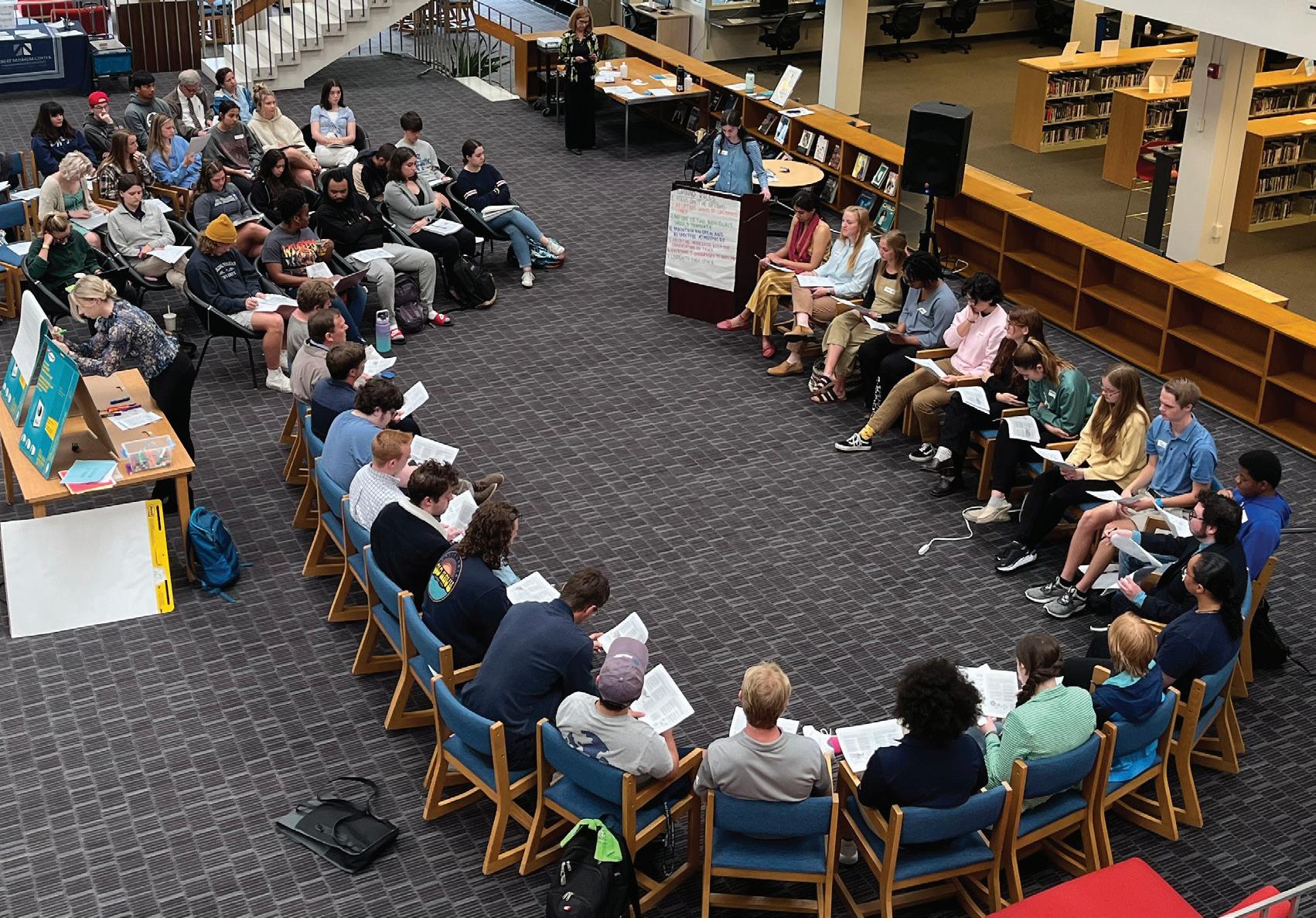BREAKING BARRIERS
BUILDING


BUILDING

t’s not surprising that in today’s society people are reluctant to be police officers. A recent national survey showed that on average police departments experienced a 45% increase in retirements and an 18% jump in resignations over the previous year. And 7% of budgeted positions were open. Recruiting minorities to be police officers is even more challenging.
Not only do police officers deal with traumatic incidents on a regular basis, they sometimes find themselves in unclear situations, forced to make split-second decisions that can have life-changing consequences for themselves and others. Not to mention that some people no longer trust the police to protect their safety and security. Officers who felt called to serve and help others can be disillusioned when people don’t trust their intentions.
At the same time, for those who’ve seen that not everyone is treated equally under the law, for those who’ve experienced what could only be considered racial profiling, for those who’ve been pulled over for no apparent reason, for those who’ve seen videos of George Floyd and Philando Castile, and for anyone familiar with overaggressive officers like the former Scorpion Unit of the Memphis Police Department, their wariness of the police is understandable.
As a result, among the police and the communities they serve, safety has become a major concern. A lack of cooperation between police and communities often causes an increase in crime, what St. Louis Police Chief Sam Dotson called “the Ferguson effect.” Violent crimes can increase because of reduced proactive policing.
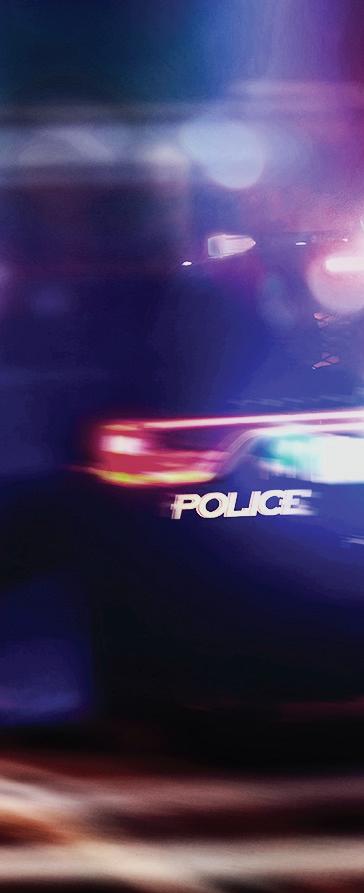
The good news is that a growing number of police departments and communities have acknowledged these challenges and are working together on solutions. They’ve sought to build stronger relationships, try new ways of policing, create a sense of shared responsibilities, and promote collaborative approaches to solving problems. Unfortunately, both the police and the communities are doing so with less-than-adequate resources and time, but they know the need to collaborate is vital.
That’s why the Robert Nusbaum Center has been in conversation with our neighbors in Western Bayside and with members of the Virginia Beach Police Department. Our goal is to facilitate discussions that can help our Coastal Virginia community deal with many of the same issues facing our nation as a whole. For more about what we’re doing locally, see page 5.
This semester, we invite you to be part of this conversation. Join us as we continue discussing some of the issues involved, such as overcoming unconscious bias, responding to human trafficking, getting help for disabled first responders, and keeping neighborhoods safe for everyone.
We also hope you’ll attend our other topical programs, ranging from discussions of “Barbie,” “Oppenheimer,” and AI/ChatGPT, to lectures on the seven deadly sins, the challenges of Disney’s first 100 years, and religion and outer space.
Until we see you at a program, please know that we’re grateful for your support and the ways you help us focus on diversity, dialogue, faith, freedom, and hope.
Thank you,
A lack of cooperation between police and communities often causes an increase in crime.
CONSTITUTION DAY
Tuesday, September 19 | 12-1 PM BLOCKER AUDITORIUM
Human trafficking is widely recognized as a modern-day form of slavery, with hundreds of documented cases in Virginia. Trafficked individuals frequently are forced or coerced into prostitution, selling drugs, theft, violence and more. The victims who are convicted of those crimes are then plagued by a criminal record even if they manage to escape from being trafficked.

In 2021, a law was passed in Virginia that made it possible for sex trafficking survivors to petition to vacate, or clear from their record, certain charges like prostitution if they could show the crime was committed due to being trafficked.
Please join us for a discussion on human trafficking in Coastal Virginia and this new law, as we host Olivia–the first person in Virginia to have had her convictions vacated–Meg Kelsey, the attorney who filed the petition on behalf of Olivia, and Ramin Fatehi, Norfolk Commonwealth’s Attorney, who will help us understand more clearly the legal implications and necessary shift in viewing trafficking victims as survivors and not criminals.
Olivia is a survivor of human trafficking who was first trafficked at 18 years old. Like many others who are trafficked, she wound up with a criminal record and ended up in prison. Olivia was the first trafficked individual in Virginia to have her Petition for Writ of Vacatur granted.
Margaret “Meg” Kelsey, Esq. is Assistant Director of the Center for Global Justice at the Regent University School of Law. She served for five years as an Assistant Commonwealth’s Attorney, worked ‘of-counsel’ for a private firm and was a Fellow at the Center for Ethics and Public Service at the University of Miami School of Law.
The Honorable Ramin Fatehi has served since 2022 as the Commonwealth Attorney for Norfolk. Ramin joined the Norfolk office in 2012 after previously serving as a former public defender and state and federal prosecutor.
Thursday, October 19 | 11 AM –1 PM
BROCK COMMONS
This program offers two separate sessions. Please feel free to attend one or both sessions.
Sponsored in partnership with the VWU Department of Sociology and Criminal Justice
11 AM –12 PM

BOBBY KLEPPER
Hear Bobby Klepper’s heartwarming story about how his service dog, Recon, not only saved his life but made life for him worth living again. Bobby is a retired member of the Virginia State Police, Vietnam-era veteran, and former Explosive Ordnance Disposal (EOD) technician (a “bomb tech”). He is an advocate for various veterans’ issues, and once rode a motorcycle from Virginia Beach to San Diego while wearing a “bomb suit” to fundraise and raise awareness in support of wounded EOD personnel. In 2022, Recon was honored as the American Humane Service Hero Dog for his lifesaving act when Bobby was injured. Please join Bobby and Recon to learn about their special journey and deep bonds.
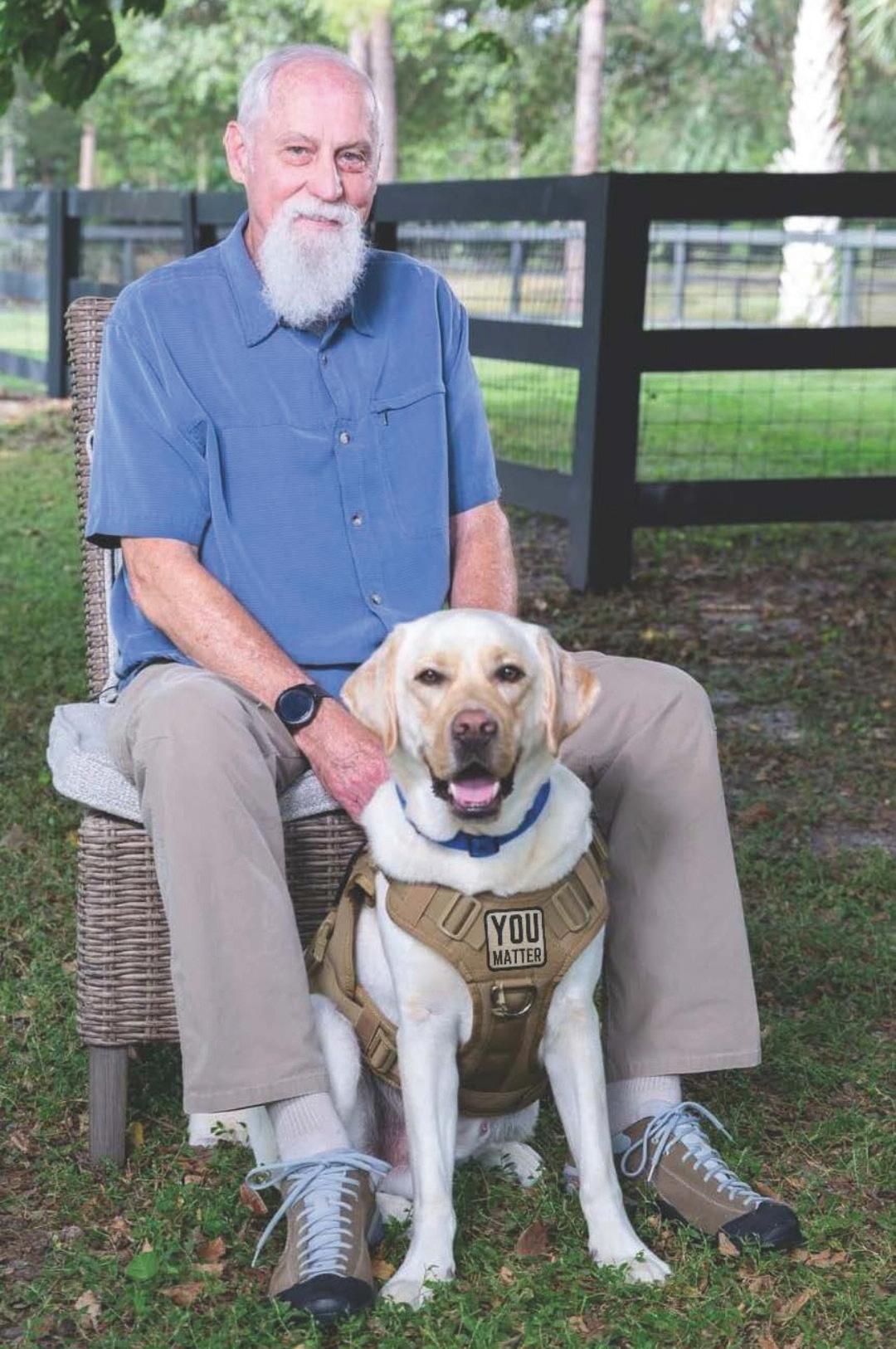
12–1 PM
BROOKE CORSON
After witnessing the positive impact dogs provided to troops returning from overseas deployments, Brooke Corson founded Mutts With A Mission in 2008 to provide specially trained service dogs to assist disabled veterans, first responders, and law enforcement professionals. Learn about how Recon was trained and about the special role of puppy raisers. Mutts With A Mission could not exist without puppy raisers, and the organization pays all related expenses for volunteers who open their hearts and homes to puppies in training to become service dogs. Come meet some of the puppies and find out how you can become a puppy raiser and give someone the life-changing gift of a service dog.

Thursday, October 26 | 12–1 PM BROCK COMMONS
Inthis talk, Thomas Brown highlights an aspect of policing in 18th-century Charleston, South Carolina, one in which informal policing meant that white men could stop any Black person and take property from them if they suspected it was stolen. In addition, from his research on “Fugitive Slave Advertisements in The City Gazette: Charleston, South Carolina, 1787-1797,” Brown shares with us—one advertisement at a time—a series of human dramas of courage and resistance to unjust authority. Brown reflects on what fugitive slave ads tell us and on why these individual narratives are significant in understanding slavery and law enforcement.
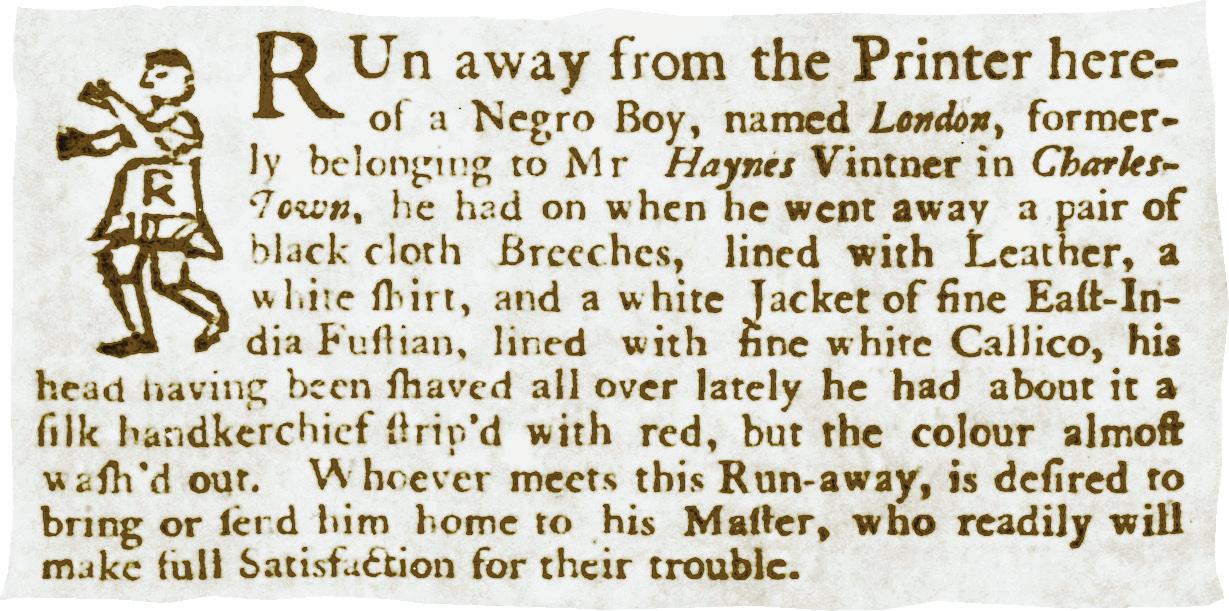
COOKSON LECTURE
Thursday, November 2 | 7-8 PM BROCK COMMONS
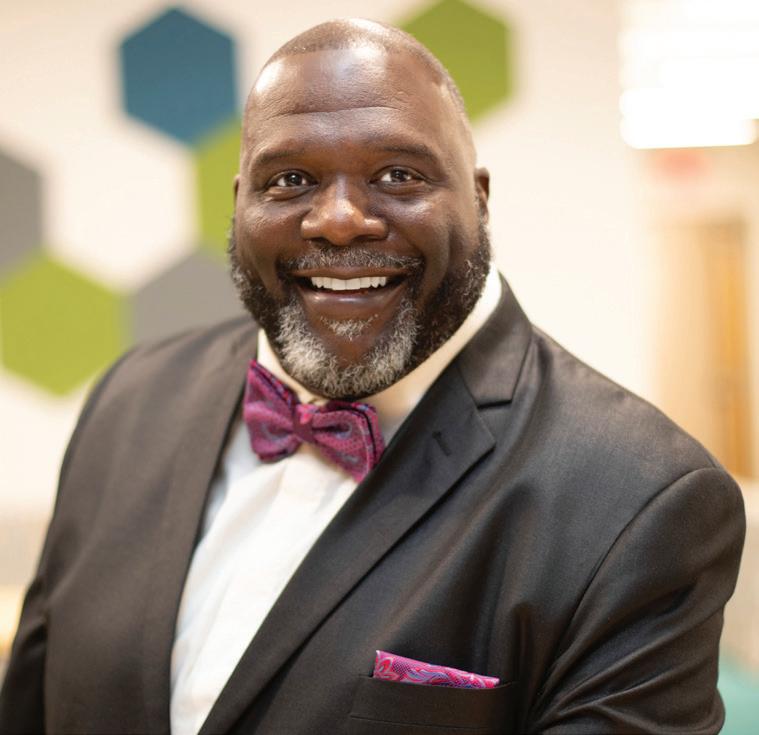
ROBERT K. PERKINS,
PH.D.Why do so many communities not trust the police? Why do so many police not trust the communities they serve? In this talk, Robert Perkins highlights how the current state of affairs in policing necessitates a reinvigorated commitment to the critical components of community policing. This involves a critical analysis of the unconscious biases that everyone has and the deliberate cultivation of strategies that increase self-awareness, mutual understanding, and—ultimately—trust. When trust is so elusive, how do we move forward? That is the focus of our time together this evening.
For over 30 years, Debra Grant has been a tireless advocate for the children in her Lake Edward neighborhood in Western Bayside. At one time or another, she has been active in every civic and community effort to improve her neighborhood. Now, with gray in her hair, she’s tired. She hasn’t lost hope, but she’s weary from too much talk and not enough action.
“We need to get out of our silos and work together to do what we all know needs to be done,” she said. “We have children who need our help. They need to know that they are important and that they live in a community that cares about them. They need to have hope for the future. We need to stop talking and just get out there and do what needs to be done.”
VWU and the Robert Nusbaum Center agree.
The University’s main campus sits in the heart of Virginia Beach’s Western Bayside area. The densely populated Lake Edward and Campus East neighborhoods adjoin our eastern border. Over the years, we’ve been involved in community and police partnerships focused on the well-being of those neighborhoods, which have high concentrations of children living in poverty, as well as high rates of crime and violence.
This fall, Virginia Wesleyan is hosting two community forums to launch the process. Please join us in getting out of our silos and becoming the powerful agents of change that Debra Grant believes we can be. The children are waiting. Registration is required. Call 757.455.3129 to register.
Thursday, October 12 | 6:30-8:30 PM
BROCK COMMONS
In this initial forum, diverse stakeholders will discuss concerns and aspirations for the Western Bayside community. The forum seeks to identify common themes, challenges, and goals, and cultivate a shared understanding of needed changes.
There is a new sense of urgency among the stakeholders.
The work that has already been done through those collaborative efforts has built relationships with longtime neighborhood residents, faith and civic leaders, and police officers serving in Virginia Beach’s 3rd Precinct. Today, the University is active in several groups that bring together community and police. These groups meet regularly, and some stakeholders sit at all of the tables. A few examples of what these groups have accomplished include neighborhood police recruitment events to help address the deficit in minority law enforcement, regular mobile health-care visits, and a community garden. The groups also host annual National Night Out events, Parks After Dark programs during the summer, and Community Day celebrations.
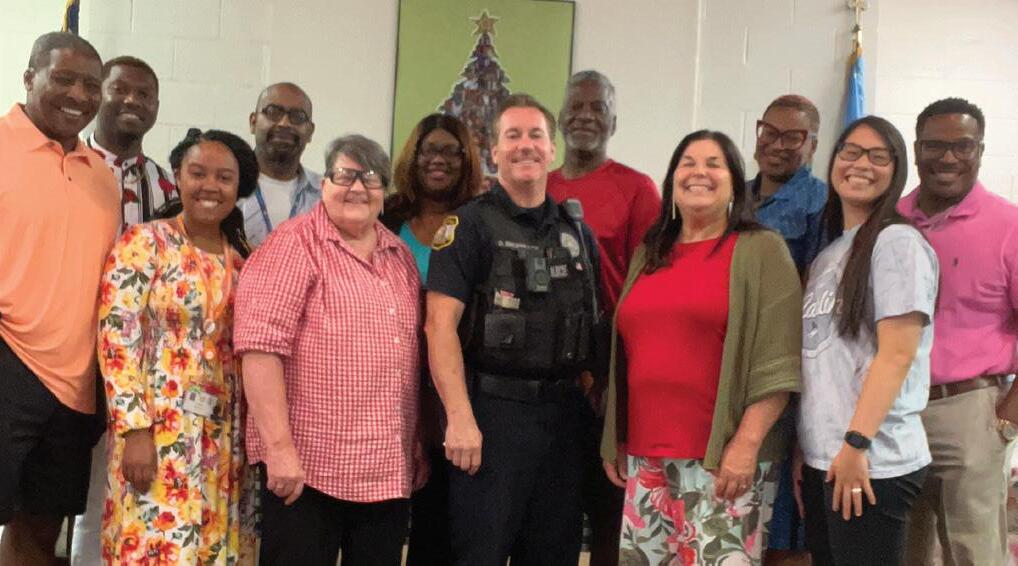
Perhaps it was the murder of George Floyd or the isolation caused by the pandemic, but there is a new sense of urgency among the stakeholders—a collective will to build bridges, act with greater intention, and focus on systemic change.
To that end, anyone with a vested interest in Western Bayside is invited to participate in “Forging Unity in Western Bayside: Connecting Stakeholders for Collaborative Action,” a comprehensive process that engages diverse stakeholders in dialogue to identify common ground, develop a unified vision, and create a path forward for meaningful and lasting change. We hope this initiative can serve as a model that other communities can adopt.
Thursday, November 9 | 6:30-8:30 PM
BROCK COMMONS
Building on the October forum, stakeholders will engage in facilitated conversations around shared interests and areas of alignment. This forum is designed to guide stakeholders in a collaborative process to develop a unified vision with objectives and goals for achieving desired outcomes in the community.
Thursday, November 30 | 12-1 PM
BROCK COMMONS
Whilewhite Americans have mostly had positive encounters with police, many people of color distrust and even fear law enforcement officers because of a long history of violence and discrimination. Many police chiefs and officers want more accountability and fairness, but policing policies and reform require crucial decisions to be made.
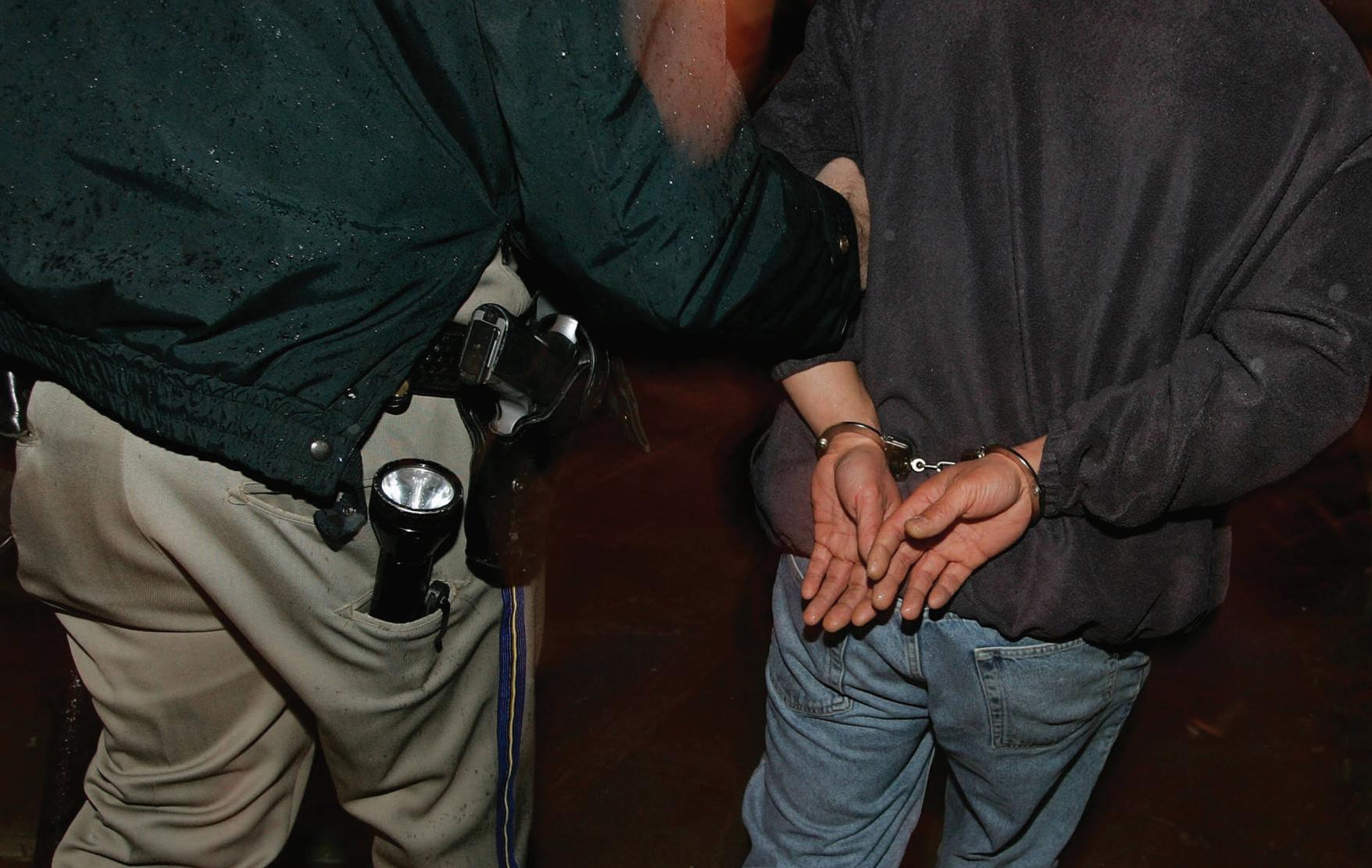
In this deliberation, facilitated by VWU students trained by the Nusbaum Center, participants discuss three broad options for rethinking police practices, each suggesting a different set of reforms and different ways of thinking about how to keep communities safe. The three options offer a framework to tackle tough questions: What should we do? What are the risks and potential tradeoffs? What actions can we support and what might we be willing to give up? Please join us.
Theterm “deliberative dialogue” isn’t frequently used in everyday life—particularly in a partisan or contentious world—but it offers a reflective approach that moves beyond lectures, debates, or the sharing of grievances.
A deliberative dialogue is a facilitated approach that is distinctly nonpolitical, one that starts with our individual experiences with societally significant problems and then looks at the costs and consequences of possible solutions, reflecting on options and tradeoffs.
Why engage in deliberation? Because it leads to change. It is not about participants reaching agreement but, rather, about them looking at a shared future in which they have control.
The National Issues Forum has created many resources that lay out a helpful framework for dialogue. At VWU we have used these resources to have meaning-filled dialogue with student government, College Republicans, Young Democrats, and students across academic disciplines..
Although the discussion described above will be on campus, our trained student moderators would love to lead a dialogue with members of your civic group, school, place of worship, or other organization. For more information, please reach out to Kelly Jackson at kjackson@vwu.edu or VWU junior Sam Silvia at sgsilvia@vwu.edu.
Tuesday, October 10 | 12-1 PM BROCK COMMONS
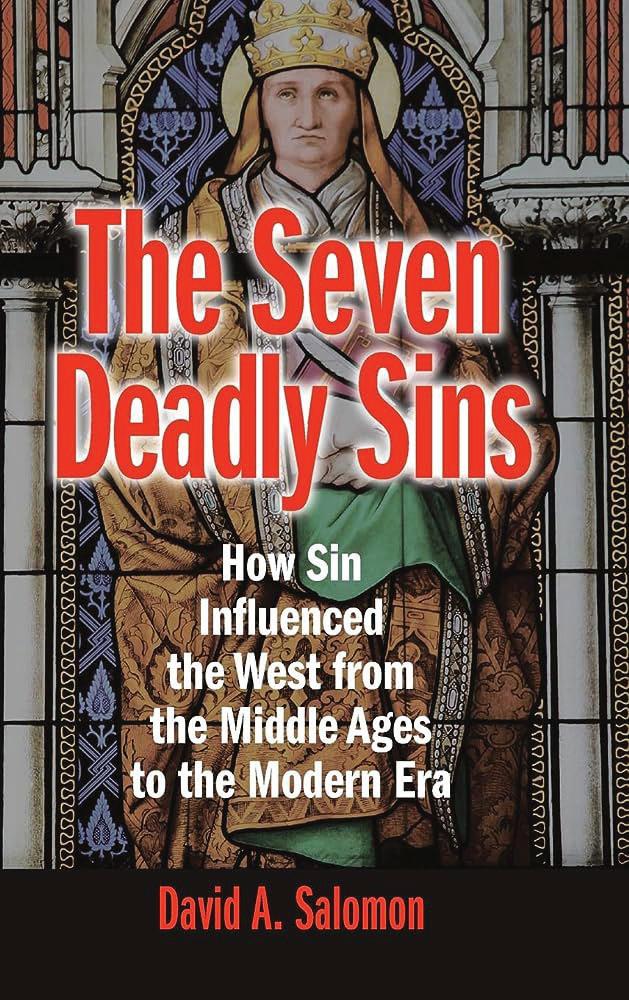 DAVID SALOMON, PH.D.
DAVID SALOMON, PH.D.
The seven deadly sins often seem like tropes or stereotypes. But the concept of sin itself has been integral to the development of Western society, not just in political and religious history, but also in popular culture.
– Why do these seven sins matter today?
– How have they come to be seen in new ways?
– Need they be seen as religious in any way?
– And do they still matter for morality today?
Tuesday, October 17 | 12-1 PM BROCK COMMONS
During the last year it has been a rare week when the relationship between Disney World and the state of Florida hasn’t been in the news. But different challenges existed during Disney’s first 100 years. Although the company’s major successes transformed filmmaking and culture, it also had its share of unfinished projects, unmet expectations, and box-office misses. Few people today, for instance, remember Disney comics or Disney’s misstep with “The Watcher in the Woods” (1980), a horror film that starred Bette Davis. At the same time, gems like “The Gnome-Mobile” (1967) have been overlooked, even during a time when eco-fiction is seen as more relevant. And “Babes in Toyland” (1961) didn’t turn out as expected. Reflecting on her most recent book, “Forgotten Disney: Essays on the Lesser-Known Productions,” VWU Professor Kathy Merlock Jackson points to some forgotten challenges of a company many of us take for granted.
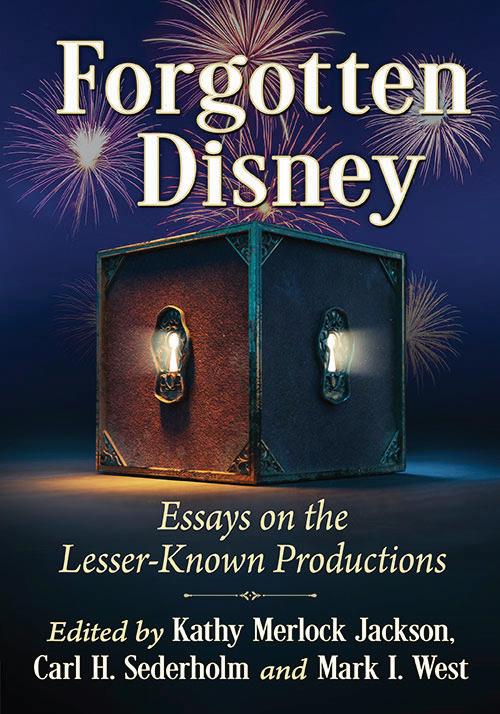
Tuesday, October 31 | 12-1 PM BROCK COMMONS

Withinthe last year, artificial intelligence has come to affect almost every aspect of higher education. This raises philosophical questions about what constitutes authorship, but it also highlights how students can grow in qualitatively and quantitatively different ways. During this session, we showcase four pathways VWU faculty are using to create new experiences for students. Education students, for instance, are using AI lesson-planning software in thinking about science pedagogy. Religious studies students are using AI to understand more deeply affective aspects of extreme religious rituals. Students who will study abroad are using ChatGPT as a research tool that helps them simulate aspects of studying away. And students in teacher education are taught the skills to critically examine the output of ChatGPT. Join us for four brief presentations, along with a discussion of new challenges and possibilities in higher education.
Thursday, November 16 | 12-1 PM BLOCKER AUDITORIUM
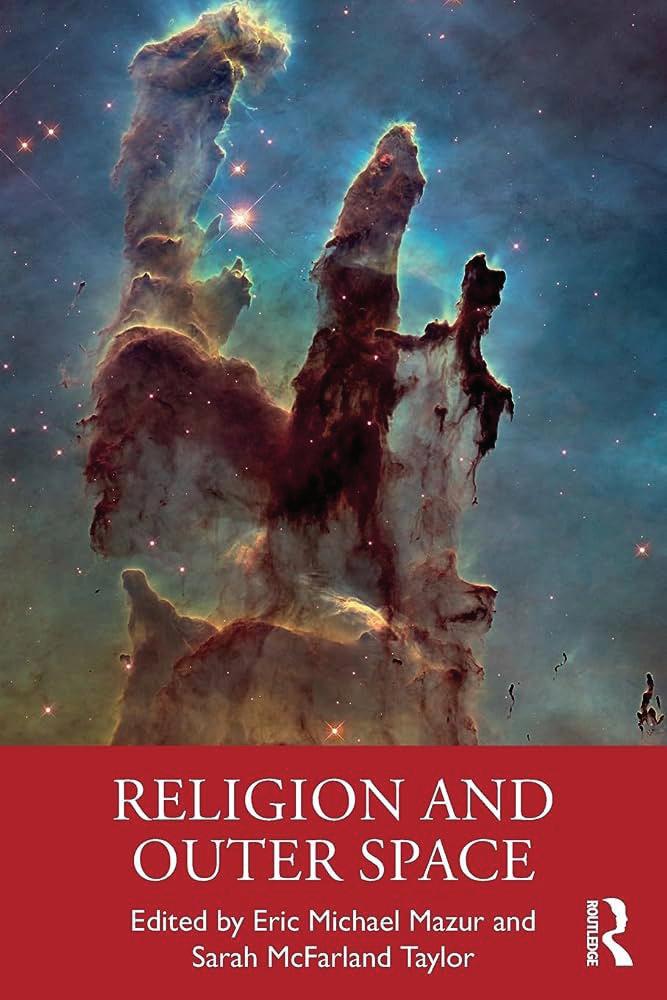
ERIC MAZUR, PH.D.
In a world in which UFOs continue to raise questions, in a world in which billionaires seek to travel to space, and in a world in which “Star Trek” and “Star Wars” continue to hold people’s imaginations, how do religions approach outer space? How do they affect space exploration? What do religions say about worlds beyond this one? Join Eric Mazur, Professor of Religious Studies at Virginia Wesleyan University and editor of “Religion and Outer Space” (published July 2023), as he introduces some of the varied relationships between outer space and the beliefs, scripture, and practices of religion. He explores the ways in which religion and myth have had a profound impact on how we’ve come to visualize the American space program.
Thursday, September 14 | 12-1 PM
BROCK COMMONS
In its first two weeks the movie “Barbie” topped $1 billion in ticket sales around the world. Some moviegoers were attracted to the humor or the surreal pink world of Barbieland; others to the values of the alternate universe. Some left the theater reflecting on nostalgia, sexism, feminism, and patriarchy. Others wondered about the movie’s tagline, “She’s everything. He’s just Ken.” And many were eager to find the text of America Ferrara’s speech. The movie “Barbie” can be understood in many different ways. Join a panel of VWU professors as each focuses on the movie through the perspective of their own academic discipline: political science, psychology, theater, and religious studies.

Thursday, September 28 | 12-1 PM
BROCK COMMONS
Leslie Caughell, Ph.D. (political science)
Terry Lindvall, Ph.D. (religious studies)
Taryn Myers, Ph.D. (psychology)
Sally Shedd, Ph.D. (theatre)
As viewers watched the highly anticipated movie “Oppenheimer,” some were excited to experience the Christopher Nolan aesthetic, the shifting storyline, or even the overwhelming visuals and the rumbling they felt in the theater. Others were eager to learn more about a significant figure in American history, the dark side of a scientific discovery, or the ethical challenges of war. “Oppenheimer” can be understood in many different ways. Join a panel of VWU professors as each one focuses on the film from the perspective of their own academic discipline: film, philosophy, history of science, international relations, and political science.
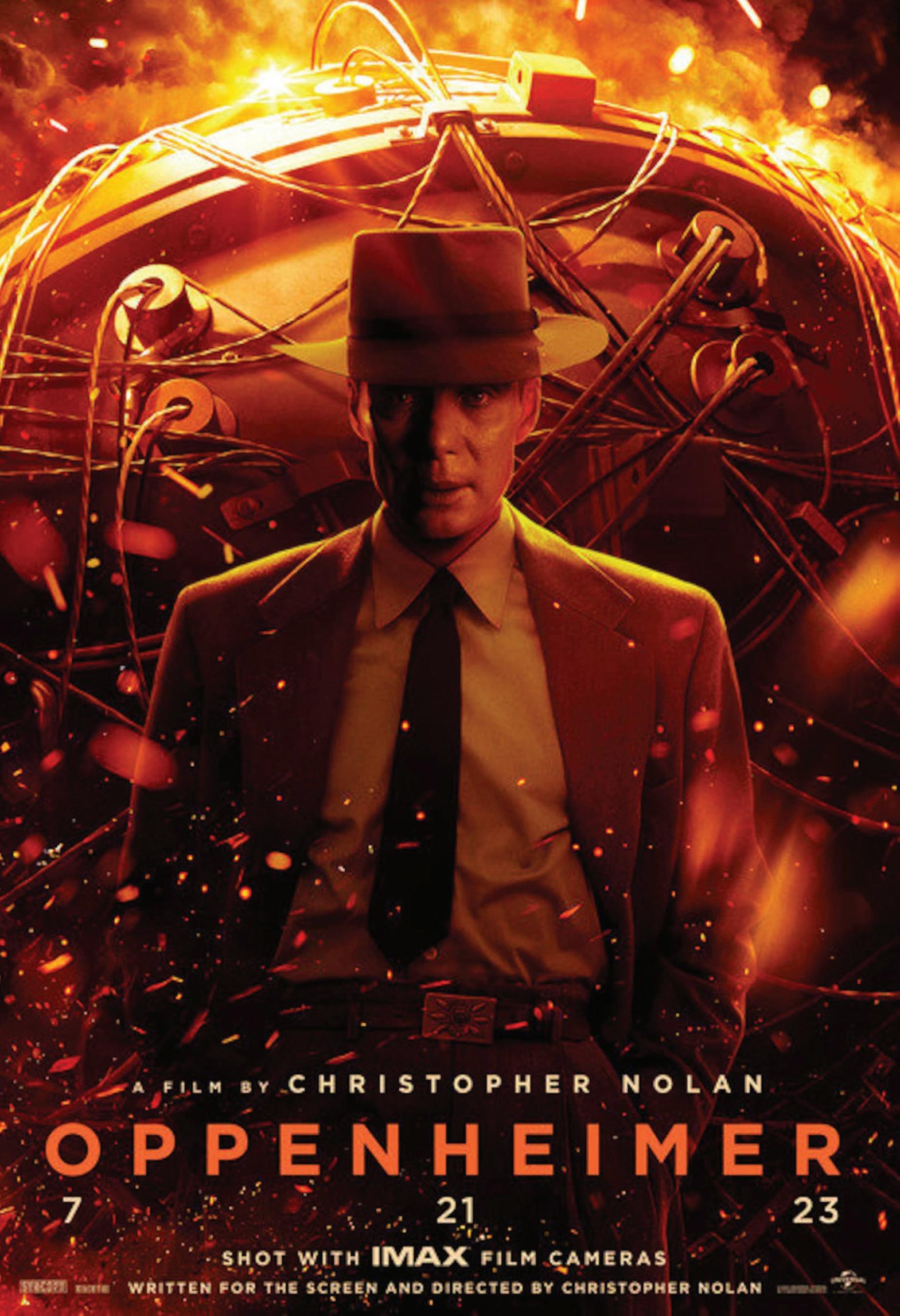
Larry Hultgren, Ph.D. (philosophy)
Kevin Kittredge, Ph.D. (chemistry/history of science)
Stu Minnis, Ph.D. (media/communication/film)
Antje Schwennicke, Ph.D. (political science/international relations)
14 Why “Barbie” Matters
An Interdisciplinary Approach
Thursday, 12-1 PM
Brock Commons
19 CONSTITUTION DAY
No Longer Seen as the Criminal A Personal Story of Expunging Convictions from a Trafficking Survivor’s Record
Tuesday, 12-1 PM
Blocker Auditorium
28 Why “Oppenheimer” Matters
An Interdisciplinary Approach
Thursday, 12-1 PM
Brock Commons
OCTOBER
10 My Personal Sins
Why I Wrote a Book on the Seven Deadly Sins
David Salomon, Ph.D.
Tuesday, 12-1 PM
Brock Commons
12 Forging Unity for Collaborative Action Listening and Finding Common Ground in Western Bayside
Thursday, 6:30-8:30 PM
Brock Commons
Registration required. Call 757.455.3129 to register.
17 Forgotten Disney Challenges in Disney’s First 100 Years
Kathy Merlock Jackson, Ph.D.
Tuesday, 12-1 PM
Brock Commons
19 Unbreakable Bonds
A Veteran’s Journey to Accepting Assistance and Love from a Service Dog
Bobby Klepper
Mutts With A Mission
Brooke Corson
Thursday, 11 AM-1 PM
Brock Commons
Sponsored in partnership with the VWU Department of Sociology and Criminal Justice
26 Hunting Down Runaways, Informal Policing, and Fugitive Slave Advertisements
Thomas Brown, Ph.D.
Thursday, 12-1 PM
Brock Commons
31 AI in Academia
The Allure of ChatGPT’s Pedagogical Potential
Tuesday, 12-1 PM
Brock Commons
2 COOKSON LECTURE
Elusive Trust
Unconscious Bias between Police and the Communities They Serve
Robert K. Perkins, Ph.D.
Thursday, 7–8 PM
Brock Commons
9 Forging Unity for Collaborative Action Creating a Unified Vision for the Future of Western Bayside
Thursday, 6:30-8:30 PM
Brock Commons
Registration required. Call 757.455.3129 to register.
16 Religion in Outer Space Myth, Diversity, and the Final Frontier
Eric Mazur, Ph.D.
Thursday, 12-1 PM
Blocker Auditorium
30 STUDENT- LED DELIBERATIVE DIALOGUE Policing
What Should We Do to Ensure Fair Treatment and Keep Neighborhoods Safe for Everyone?
Thursday, 12-1 PM
Brock Commons
ALL EVENTS ARE FREE AND OPEN TO THE PUBLIC
Craig Wansink, Ph.D.
Joan P. and Macon F. Brock, Jr. Director, and Professor and Chair in the Department of Religious Studies
Kelly Jackson
Associate Director
Eric Mazur, Ph.D.
Fellow for Religion, Law, and Politics, and the Gloria and David Furman Professor of Judaic Studies
757.455.3129
vwu.edu/nusbaumcenter NusbaumCenter@vwu.edu
Understanding
DIVERSITY | DIALOGUE | FAITH | FREEDOM is published twice a year by the ROBERT NUSBAUM CENTER at Virginia Wesleyan University
EDITOR Craig Wansink, Ph.D.
MANAGING EDITOR Kelly Jackson
ART DIRECTOR Christine Hall
During the pandemic,12 masked VWU students sat six feet away from each other in a space so large that they needed to use a microphone (which they then wiped off before handing it to the next speaker).

We are grateful to have moved beyond that, to Brock Commons, and then–subsequently–to the first floor of the library, where over 50 students and faculty discussed issues of significance to us all.
